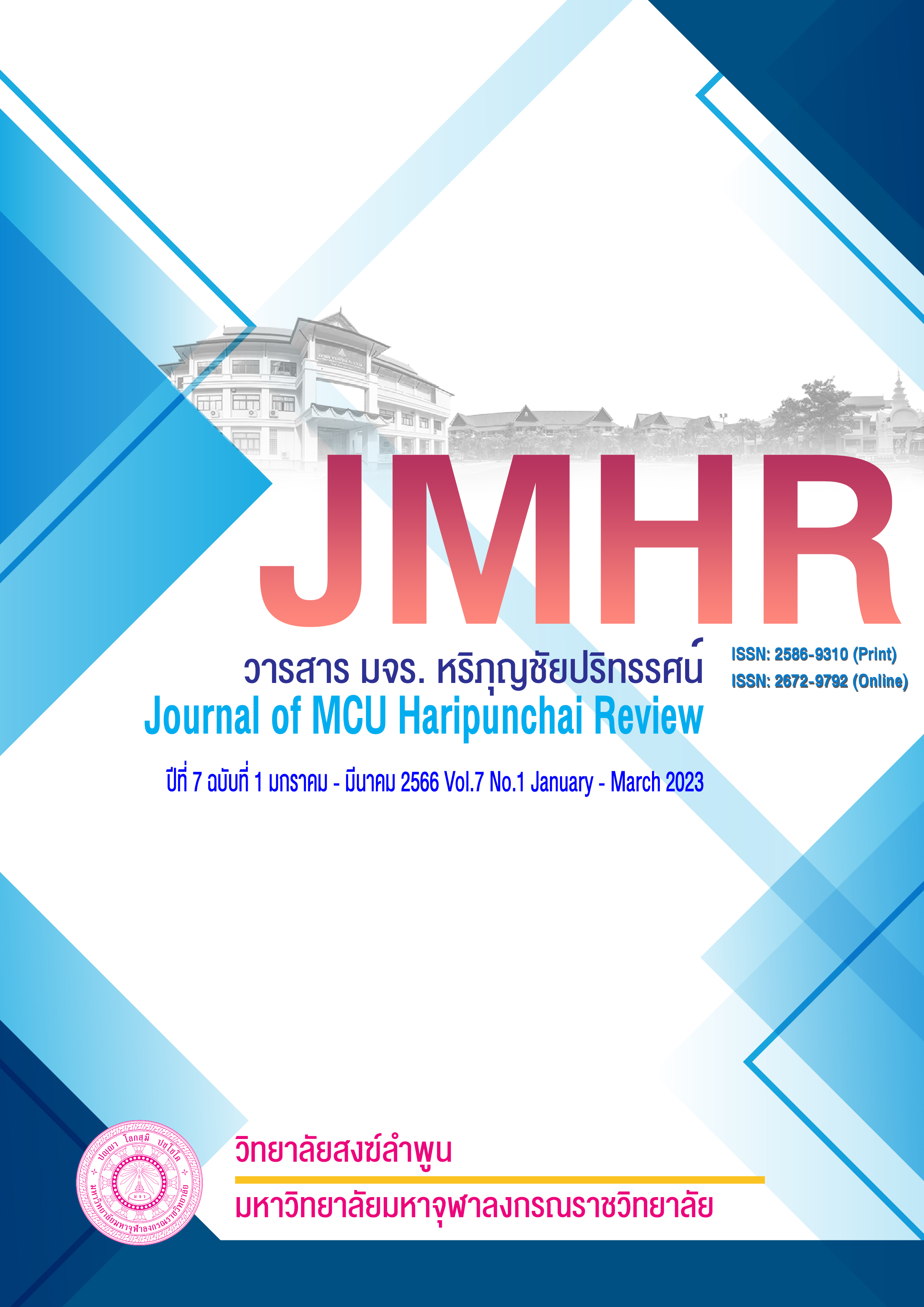Strengthening Buddhist Political Ethics of Politicians in Nan Province
Main Article Content
Abstract
The objectives of this research were 1) to examine the promotion of political ethics of politicians, 2) to explore the factors affecting the promotion of political ethics of politicians in Nan Province, and 3, to present the strengthening of Buddhist political ethics of politicians in Nan Province. The researcher defines this research methodology as a qualitative research by in-depth interview from 18 key informants and focus group discussion of 10 people by analyzing commentary and description methods. The result showed that:
- The strengthening condition of Buddhist political ethics of politicians in Nan Province was found that the ethics are the basic foundation of everyone and all professions. Three processes should be followed, namely 1) the laws and policy, 2) the project and activity, and 3) the results of operation or indicator.
- Factors affecting the strengthening of Buddhist political ethics of politicians in Nan Province was found that these factor affect the strengthening of ethics, including 1) Culture, 2) Philosophy and belief, and 3) Religion
- The strengthening of Buddhist political ethics of politicians in Nan Province was found that five operations should be followed, namely 1) Life insurance, 2) Property insurance, 3) Family insurance, 4) Social insurance, 5) Health insurance.
Article Details

This work is licensed under a Creative Commons Attribution-NonCommercial-NoDerivatives 4.0 International License.
References
ทัศนีย์ ลักขณาภิชนชัช. (2545). การบริหารชุมชนสังคม เพื่อสร้างความเข้มแข็งของสังคมเมือง. รายงานวิจัย. คณะสังคมสงเคราะห์ศาสตร์ มหาวิทยาลัยธรรมศาสตร์,
พระครูวชิรคุณพิพัฒน์.(2548). “การพัฒนาภาวะผู้นำของพระสังฆาธิการในเขตปกครองคณะสงฆ์ภาค ๔”.วิทยานิพนธ์พุทธศาสตร์ดุษฏีบัณฑิต. บัณฑิตวิทยาลัย : มหาวิทยาลัยมหาจุฬาลงกรณราชวิทยาลัย.
สนธยา พลศรี. (2553). ทฤษฎีและหลักการพัฒนาชุมชน. กรุงเทพมหานคร :สำนักพิมพ์โอเดียนสโตร์.
สุเมธ ตันติเวชกุล. (2531). “กลวิธีในการพัฒนาชนบทตามแนวพระราชดำริ : สารานุกรมไทยสำหรับเยาวชนฯ”. ฉบับที่ 12.
อภิชญาณัฐโศภา อบสิน. (2548). “รูปแบบการพัฒนาภาวะผู้นำเชิงพุทธในการบริหารจัดการองค์กรของมหาวิทยาลัยมหาจุฬาลงกรณวิทยาลัย”. วิทยานิพนธ์พุทธศาสตร์ดุษฏีบัณฑิต. บัณฑิตวิทยาลัย : มหาวิทยาลัยมหาจุฬาลงกรณราชวิทยาลัย.
อัมพร วงศ์โสภา.(2556). “รูปแบบภาวะผู้นำเชิงพุทธตามหลักสัปปุริสธรรมขององค์กรปกครองส่วนท้องถิ่น : กรณีศึกษาความคิดเห็นของประชาชน อำเภอสันป่าตอง จังหวัดเชียงใหม่”. วิทยานิพนธ์พุทธศาสตรดุษฎีบัณฑิต. บัณฑิตวิทยาลัย : มหาวิทยาลัยมหาจุฬาลงกรณราชวิทยาลัย.


